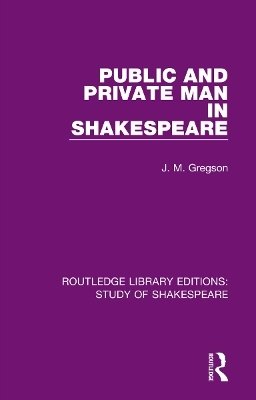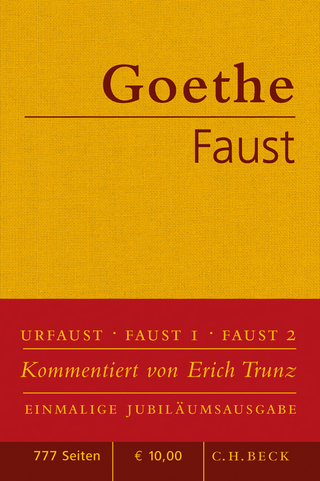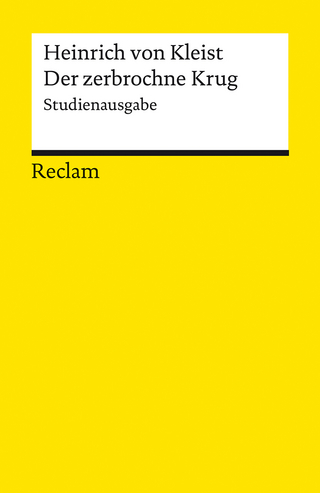
Public and Private Man in Shakespeare
Seiten
2021
Routledge (Verlag)
978-0-367-68418-1 (ISBN)
Routledge (Verlag)
978-0-367-68418-1 (ISBN)
Shakespeare absorbed more deeply the problem of the tensions between the public and private face of man than other Elizabethan dramatists. Originally published in 1983, this book examines the ways in which this psychological insight is developed and modified as a source of dramatic power throughout Shakespeare’s career.
The potential duality of human character and its capacity for dissembling was a source of fascination to the Elizabethan dramatists. Where many of them used the Machiavellian picture to draw one fair-faced scheming villain after another, Shakespeare absorbed more deeply the problem of the tensions between the public and private face of man.
Originally published in 1983, this book examines the ways in which this psychological insight is developed and modified as a source of dramatic power throughout Shakespeare’s career. In the great sequence of history plays he examines the conflicting tensions of kingship and humanity, and the destructive potential of this dilemma is exploited to the full in the ‘problem plays’. In the last plays power and virtue seem altogether divorced: Prospero can retire to an old age at peace only at the abdication of all his power. This theme is central to the art of many dramatists, but in the context of Renaissance political philosophy it takes on an added resonance for Shakespeare.
The potential duality of human character and its capacity for dissembling was a source of fascination to the Elizabethan dramatists. Where many of them used the Machiavellian picture to draw one fair-faced scheming villain after another, Shakespeare absorbed more deeply the problem of the tensions between the public and private face of man.
Originally published in 1983, this book examines the ways in which this psychological insight is developed and modified as a source of dramatic power throughout Shakespeare’s career. In the great sequence of history plays he examines the conflicting tensions of kingship and humanity, and the destructive potential of this dilemma is exploited to the full in the ‘problem plays’. In the last plays power and virtue seem altogether divorced: Prospero can retire to an old age at peace only at the abdication of all his power. This theme is central to the art of many dramatists, but in the context of Renaissance political philosophy it takes on an added resonance for Shakespeare.
J. M. Gregson
Preface. 1. Early Work 2. The Major Histories: Richard II, Henry IV, Parts 1 and 2 and Henry V 3. The Problem Plays: Troilus and Cressida, All’s Well that Ends Well and Measure for Measure 4. Hamlet 5. Othello 6. King Lear 7. Macbeth 8. The Roman Plays: Julius Caesar, Antony and Cleopatra and Coriolanus 9. The Late Romances. Bibliography. Index.
| Erscheinungsdatum | 06.04.2021 |
|---|---|
| Reihe/Serie | Routledge Library Editions: Study of Shakespeare |
| Verlagsort | London |
| Sprache | englisch |
| Maße | 138 x 216 mm |
| Gewicht | 635 g |
| Themenwelt | Literatur ► Lyrik / Dramatik ► Dramatik / Theater |
| Geisteswissenschaften ► Sprach- / Literaturwissenschaft ► Anglistik / Amerikanistik | |
| Geisteswissenschaften ► Sprach- / Literaturwissenschaft ► Literaturgeschichte | |
| Geisteswissenschaften ► Sprach- / Literaturwissenschaft ► Literaturwissenschaft | |
| ISBN-10 | 0-367-68418-7 / 0367684187 |
| ISBN-13 | 978-0-367-68418-1 / 9780367684181 |
| Zustand | Neuware |
| Haben Sie eine Frage zum Produkt? |
Mehr entdecken
aus dem Bereich
aus dem Bereich
Der Tragödie erster und zweiter Teil. Urfaust
Buch | Hardcover (2021)
C.H.Beck (Verlag)
10,00 €
Kleist, Heinrich von – Deutsch-Lektüre, Deutsche Klassiker der …
Buch | Softcover (2024)
Reclam, Philipp (Verlag)
7,40 €


